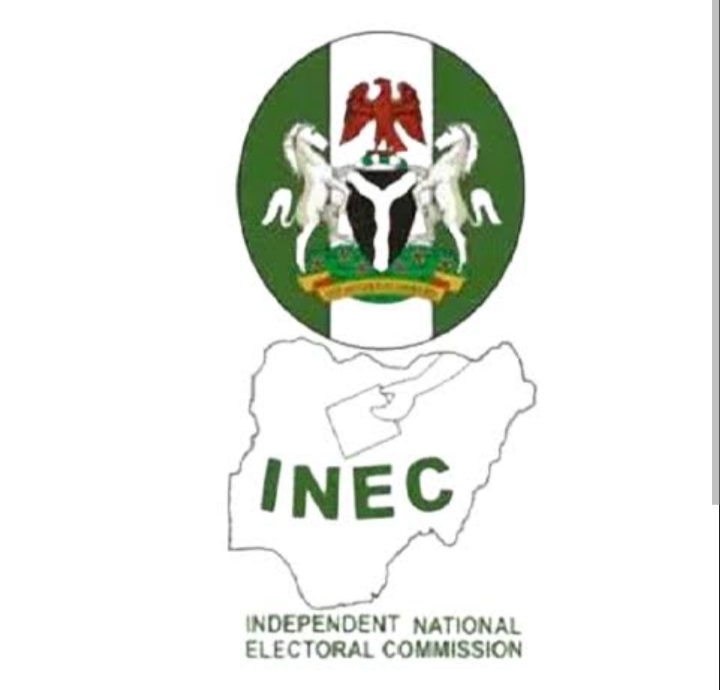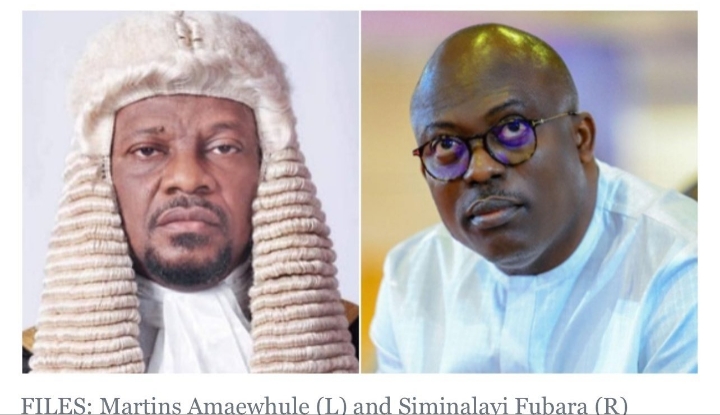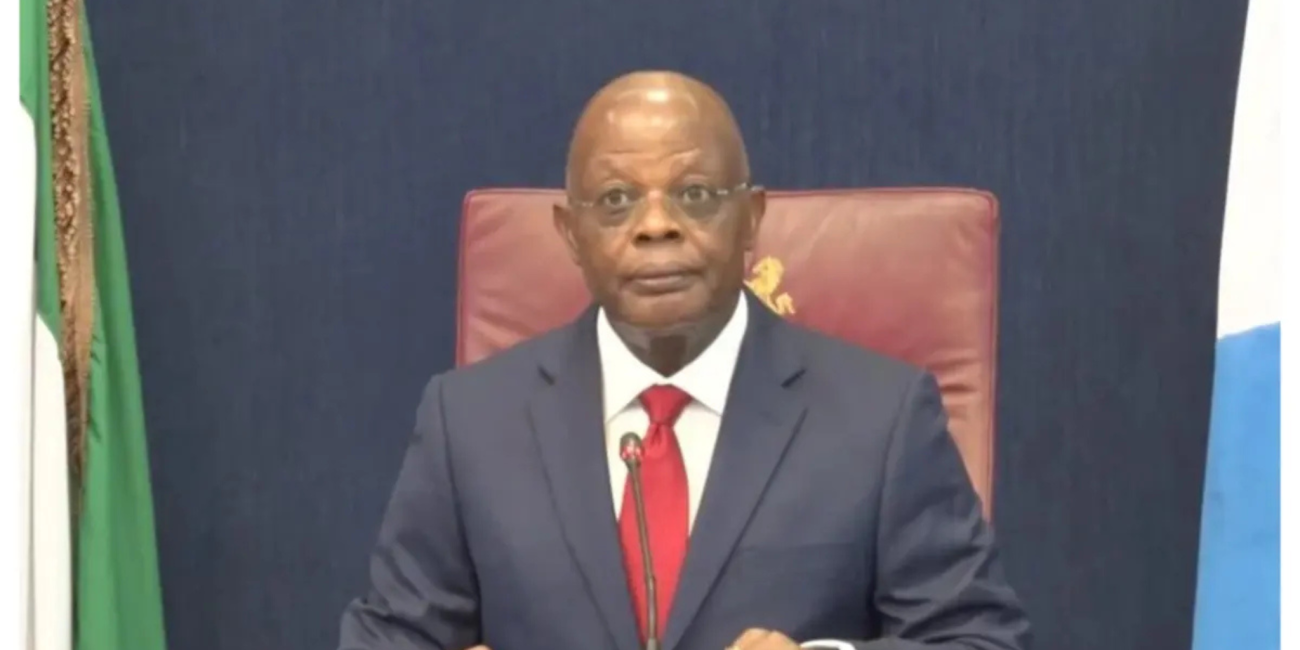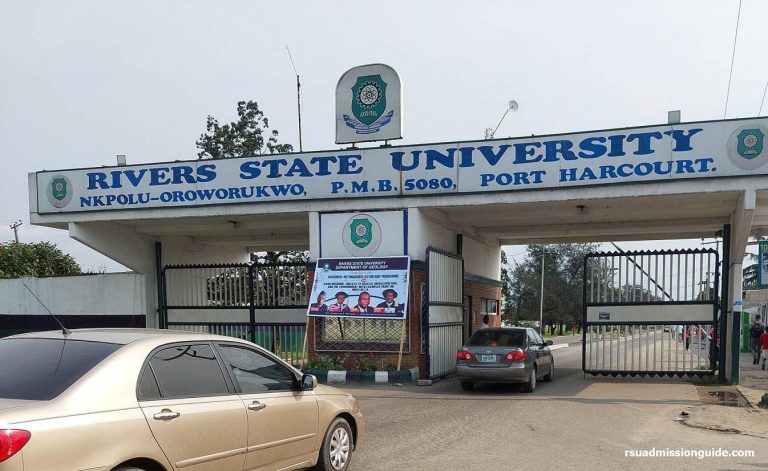ABUJA, Nigeria — In a significant diplomatic engagement, the Chairman of the Independent National Electoral Commission (INEC), Prof. Mahmood Yakubu, welcomed the new Head of the European Union Delegation to Nigeria and ECOWAS, His Excellency Gautier Mignot, at the INEC Conference Room in Abuja on January 28, 2025.
This meeting underscores the enduring partnership between Nigeria and the European Union in strengthening democratic processes. However, beneath the diplomatic pleasantries lies a complex narrative of electoral challenges, reforms, and the existential threat posed by systemic failures to Nigeria’s democratic republic.
The EU-INEC Partnership: A Historical Perspective
Since Nigeria’s return to democratic rule in 1999, the European Union has been a pivotal partner in the nation’s electoral journey. The EU’s collaboration with INEC and other stakeholders has been instrumental in implementing reforms aimed at consolidating Nigeria’s democracy. Over six electoral cycles, there have been notable improvements, yet significant challenges persist.
The 2023 General Election serves as a case in point. INEC accredited 206 national and international observer groups, including the European Union Election Observation Mission (EU-EOM). The EU-EOM’s report was particularly critical, offering 23 recommendations: eight directed at INEC and 15 at other entities such as the executive, judiciary, legislature, civil society organisations, media, faith-based organisations, and political parties.
INEC’s Self-Assessment and Response
In response to these observations, INEC conducted an extensive internal and external review of the 2023 General Election. The outcome was a comprehensive 524-page main report and a 74-page review document containing 142 recommendations.
These reports have been made publicly accessible on INEC’s website, reflecting a commitment to transparency.
Prof. Yakubu highlighted that INEC has initiated the implementation of recommendations that require only administrative action.
For instance, in subsequent off-cycle, re-run, and bye-elections, there has been an emphasis on improving the training of ad hoc staff, deploying additional Bimodal Voter Accreditation System (BVAS) machines, and enhancing the functionality of BVAS in voter accreditation through fingerprint or facial authentication.
Additionally, the speed of uploading election results to the INEC Results Viewing (IReV) portal has improved, and voter registration processes in states like Edo and Ondo have become more efficient, with an impressive 80% of Permanent Voter Cards (PVCs) collected by eligible voters.
The Persistent Challenges
Despite these strides, the 2023 elections were marred by significant issues that cast a shadow over Nigeria’s democratic process. The Commonwealth Observer Group (COG), in its final report, identified critical factors that undermined the credibility of the elections.
Notably, the failure of BVAS devices and the IReV portal on and after election day were major setbacks. These technological failures not only disenfranchised voters but also eroded public confidence in the electoral system.
Furthermore, the COG emphasized the need for comprehensive institutional and legal reforms. The 2022 Electoral Act, while a step forward, did little to address longstanding concerns regarding the regulation of political parties, particularly in terms of campaign finance, electoral offences, and candidate nomination disputes.
The report also highlighted the harassment of journalists and threats to media freedom during the election period, underscoring the hostile environment in which the media operates in Nigeria.
The Threat to Nigeria’s Democratic Republic
The implications of these challenges are profound. The erosion of public trust in the electoral process poses an existential threat to Nigeria’s democratic republic.
When citizens lose faith in the mechanisms that underpin democracy, it creates a fertile ground for apathy, civil unrest, and the potential rise of authoritarianism.
The abysmally low voter turnout in the 2023 elections is indicative of this growing disillusionment. With only 24.9 million voters, about 29% of registered voters, participating in the February 25, 2023, elections, Nigeria recorded the worst voter turnout in its electoral history.
This apathy is a direct consequence of the electorate’s diminishing confidence in the system’s ability to conduct free, fair, and credible elections.
INEC’s Clarification on Funding and International Support
In his remarks, Prof. Yakubu addressed misconceptions regarding INEC’s funding, particularly concerning international support.
He clarified that the Commission does not receive direct funding from donor agencies. Instead, the EU and other development partners provide indirect support in areas such as the publication of reports, retreats, stakeholder engagements, and consultancy services through implementing partners.
Core electoral activities, including voter registration, production of PVCs, training and remuneration of ad hoc staff, electoral logistics, and procurement of sensitive materials, remain the sovereign responsibility of the Federal Government of Nigeria.
This clarification is crucial in understanding the dynamics of international support and the autonomy of Nigeria’s electoral process. It underscores the importance of domestic responsibility in electoral management while highlighting the supportive role of international partners.
The Way Forward: A Call for Comprehensive Reforms
The path to restoring public confidence in Nigeria’s electoral system lies in comprehensive reforms that address both systemic and operational challenges. Key areas of focus should include:
Technological Integrity: Ensuring the reliability of electoral technologies like BVAS and the IReV portal through rigorous testing, training, and transparent deployment.
Legal and Institutional Reforms: Revisiting the Electoral Act to address gaps in the regulation of political parties, campaign finance, and electoral offences. Strengthening INEC’s legal powers to enforce compliance is essential.
Media Freedom and Security: Protecting journalists and upholding media freedom to ensure unbiased and comprehensive coverage of the electoral process. Addressing harassment and intimidation of media personnel is paramount.
Voter Engagement and Education: Implementing robust voter education programmes to combat apathy and encourage active participation in the electoral process.
Stakeholder Collaboration: Fostering continuous engagement between INEC, political parties, civil society organisations, security agencies, and international partners to build a consensus on electoral reforms and their implementation.
The Road Ahead
The meeting between INEC and the EU delegation symbolises a continued commitment to strengthening Nigeria’s democracy. However, the challenges highlighted necessitate urgent and decisive action.
The integrity of Nigeria’s democratic republic hinges on the collective will to implement reforms that restore public confidence in the electoral process. Failure to do so not only jeopardises future elections but also threatens the very foundation of Nigeria’s democracy.
As Nigeria approaches future electoral cycles, the lessons from the 2023 elections must serve as a catalyst for change. The nation’s democratic journey is at a crossroads, and the actions taken today will determine the trajectory of its democratic future.
It is therefore imperative for all stakeholders to rise to the occasion, confront the challenges head-on, and work collaboratively towards a more transparent, credible, and inclusive electoral process.
The Role of INEC in Nigeria’s Democratic Evolution
INEC stands as the fulcrum of Nigeria’s democratic process, bearing the immense responsibility of organising and managing elections in one of the world’s most populous democracies.
Since its establishment in 1998, the Commission has been at the centre of efforts to transition Nigeria from decades of military rule to civilian governance. However, the journey has been fraught with numerous obstacles, ranging from logistical nightmares to allegations of systemic corruption and political interference.
While Prof. Mahmood Yakubu’s leadership has ushered in a semblance of modernisation, including the introduction of technology like BVAS and the IReV portal, these advancements have not been without controversy.
The failure of these systems during the 2023 elections exposed the Commission’s vulnerability to lapses in planning, execution, and accountability.
The institutional weaknesses within INEC are often exacerbated by external pressures from political actors, who seek to manipulate the electoral process for personal or party gain.
This enduring reality underscores the need for INEC to assert its independence and rebuild trust with the electorate. The Commission’s ability to act as an impartial arbiter is not just a legal necessity but a moral imperative for the survival of Nigeria’s democracy.
Electoral Technology: A Double-Edged Sword
The introduction of technology in Nigeria’s electoral process has been hailed as a game-changer, with proponents arguing that it enhances transparency and reduces opportunities for electoral malpractice. Yet, the experience of the 2023 elections revealed the double-edged nature of this innovation.
The BVAS device, designed to authenticate voters through biometric verification, was plagued by functionality issues that disenfranchised many eligible voters. Similarly, the IReV portal, which promised real-time access to election results, suffered significant outages, leading to widespread allegations of result manipulation.
These failures not only undermined the credibility of the elections but also highlighted the risks of over-reliance on technology without adequate safeguards.
For Nigeria to fully harness the potential of electoral technology, INEC must prioritise rigorous testing, regular maintenance, and comprehensive training for personnel. Moreover, contingency plans must be in place to address technical failures swiftly and transparently.
The credibility of future elections depends on the Commission’s ability to ensure that technology serves as a tool for inclusion rather than exclusion.
Media Freedom and the Democratic Space
A free and independent media is a cornerstone of any democracy, providing a platform for public discourse, accountability, and the dissemination of information.
However, the 2023 elections were marked by an alarming rise in attacks on journalists and restrictions on press freedom. Media organizations faced threats, harassment, and censorship, creating an environment of fear and self-censorship.
This hostile climate not only stifled the media’s watchdog role but also deprived citizens of access to accurate and timely information about the electoral process.
INEC, as a custodian of democracy, must advocate for the protection of journalists and media organisations. Collaborative efforts with civil society groups and international partners are essential to safeguard press freedom and ensure that the media can operate without fear of reprisal.
The Nexus Between Election Funding and Governance
Prof. Yakubu’s remarks regarding the funding of electoral activities highlight a critical issue that often goes unnoticed in discussions about Nigeria’s democratic challenges. The reliance on government funding for core electoral operations raises questions about the autonomy and sustainability of INEC’s activities.
While international donors provide indirect support, the absence of direct financial contributions to INEC underscores the need for a robust and transparent funding mechanism.
Ensuring financial independence is crucial for INEC to resist undue political influence and maintain its integrity. The establishment of an Electoral Trust Fund, managed independently, could provide a viable solution, enabling the Commission to plan and execute its mandate without financial constraints.
The Broader Implications for Nigeria’s Democracy
The challenges confronting INEC are symptomatic of broader issues that plague Nigeria’s democratic system. The concentration of power in a few political actors, the monetization of elections, and the marginalisation of vulnerable groups all contribute to a democracy that often feels disconnected from the people it is meant to serve.
The failure to address these systemic issues risks entrenching a culture of apathy and disillusionment among the electorate. This is particularly concerning in a country where nearly 70% of the population is under the age of 30.
The youth, who should be the driving force of democratic engagement, are increasingly alienated by a system that appears unresponsive to their aspirations.
To reverse this trend, Nigeria must adopt a holistic approach to democratic reform. This includes not only strengthening INEC but also addressing the structural inequalities and governance deficits that undermine public trust.
Political parties must be held accountable for their internal processes, ensuring that they operate democratically and transparently. Civil society organisations and advocacy groups must also play a more proactive role in holding elected officials to account.
International Support: A Catalyst for Change
The role of international partners, particularly the European Union, cannot be overstated. Through initiatives like the European Union-Support to Democratic Governance in Nigeria (EU-SDGN), the EU has provided critical support to INEC and other stakeholders.
This partnership has facilitated capacity-building, technical assistance, and the promotion of best practices in electoral management.
However, international support must go beyond technical interventions. It should include advocacy for broader governance reforms, including the enforcement of anti-corruption measures and the promotion of human rights.
The EU and other partners must also ensure that their support is aligned with the needs and priorities of the Nigerian people, fostering a sense of ownership and sustainability.
A Call to Action
The maiden visit of the EU Ambassador to INEC is a timely reminder of the shared responsibility to safeguard Nigeria’s democracy. While Prof. Mahmood Yakubu’s remarks reflect a commitment to reform, the road ahead is fraught with challenges that require collective action.
Nigeria’s democratic republic is at a crossroads. The choices made today will determine its trajectory for generations to come. Therefore, INEC, as the custodian of the electoral process, must rise to the occasion, addressing its internal weaknesses and championing systemic reforms.
Political actors, civil society groups, the media, and international partners must also play their part in fostering a culture of accountability, transparency, and inclusivity.
The stakes have never been higher. As Nigeria prepares for future elections, the nation must confront its democratic challenges head-on, ensuring that the electoral process reflects the will of the people. Only then can Nigeria fulfill its promise as a beacon of democracy in Africa.





